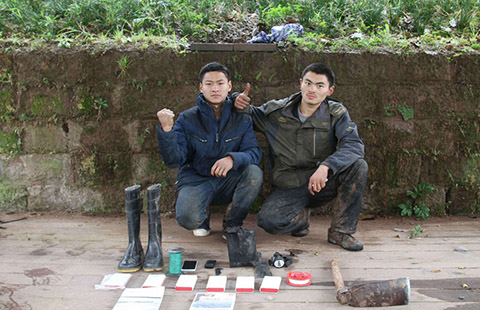Latvia seeks cooperation potential with China
By Zhao Shengnan (chinadaily.com.cn) Updated: 2012-09-12 20:47Latvia is "proposing concrete ideas" to explore cooperation potential with China as the world's second-largest economy seeks closer ties with Central and Eastern Europe, Latvian Prime Minister Valdis Dombrovskis said on Monday.
Central and Eastern Europe's Latvia has proposed some specific initiatives, mainly in the field of transportation and finance, to help implement the 12 measures proposed by Premier Wen Jiabao in April, Dombrovskis told China Daily.
The prime minister met Wen on Tuesday at the Summer Davos Forum in the northern Chinese port city of Tianjin. Both countries agreed that cooperation in transport logistics must be strengthened, as well as in areas such as information technology and education.
A $10 billion line of credit to support investment in specific industries was among the 12 new measures announced by Wen in Warsaw to promote China-Central and Eastern Europe cooperation.
China-Latvia economic cooperation has returned to pre-crisis levels, and "the fund is exactly one of the issues we're going to discuss, on how to use it specifically in Latvia", the prime minister said.
Latvia, a member of the European Union, has been widely praised for its economic record. According to Chinese Customs statistics, bilateral trade volume reached $ 1.26 billion in 2011, up 50.7 percent year-on-year.
The credit and a secretariat for cooperation between China and Central and Eastern European countries were launched in Beijing on Sept 6. Song Tao, secretary-general of the secretariat and China's vice-foreign minister, said strengthening cooperation with the region is conducive to realizing a more comprehensive and balanced China-Europe relationship, as well as overcoming the current difficulties in Europe.
Latvia, the closest border country of the EU to China, would also like to be an entry point for China to the EU bloc, Dombrovskis said.
"We are proposing some land transit routes mainly from northeast China through Kazakhstan to Latvia ports," he said.
Political leaders of countries stretching from the Baltics to the Balkans are eager to do business with China amid the European recession, while the region is also attractive to China because its labor costs are lower than those of Western Europe; a young, highly skilled work force; and access to the EU's expansive single market, the New York Times said.
China is already investing in the production of chemicals, electronics and other products in the region. Two-way trade rose from $4.3 billion in 2001 to $52.9 billion in 2011, and China aims to double trade with Central and Eastern Europe to $100 billion a year by 2015.
"The cooperation between China and the region is mutually beneficial and efficient use of the $10 billion fund is the key." said Wei Jinghua, a former Chinese ambassador to Serbia, another Central and Eastern European country.
- Some Tibetan plants can predict Indian monsoon
- Chinese scientists create functional sperm from stem cells in lab
- 2nd-child plans vex female job seekers
- Court takes case of improper detention
- Projects opening to overseas researchers
- Streamlined processes to aid top talent
- Two smog hot spots identified in Beijing by think tank
- China-led gravitational wave venture seeks global talent
- Gated communities will open 'gradually', says ministry
- Watchdog pledges to intensify scrutiny







